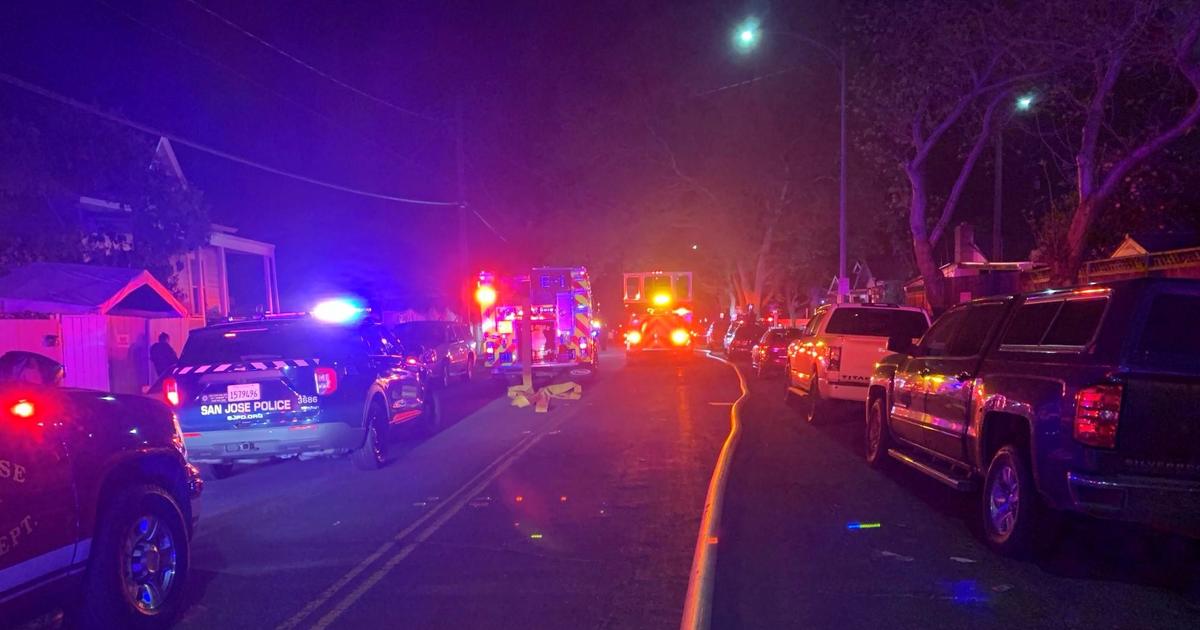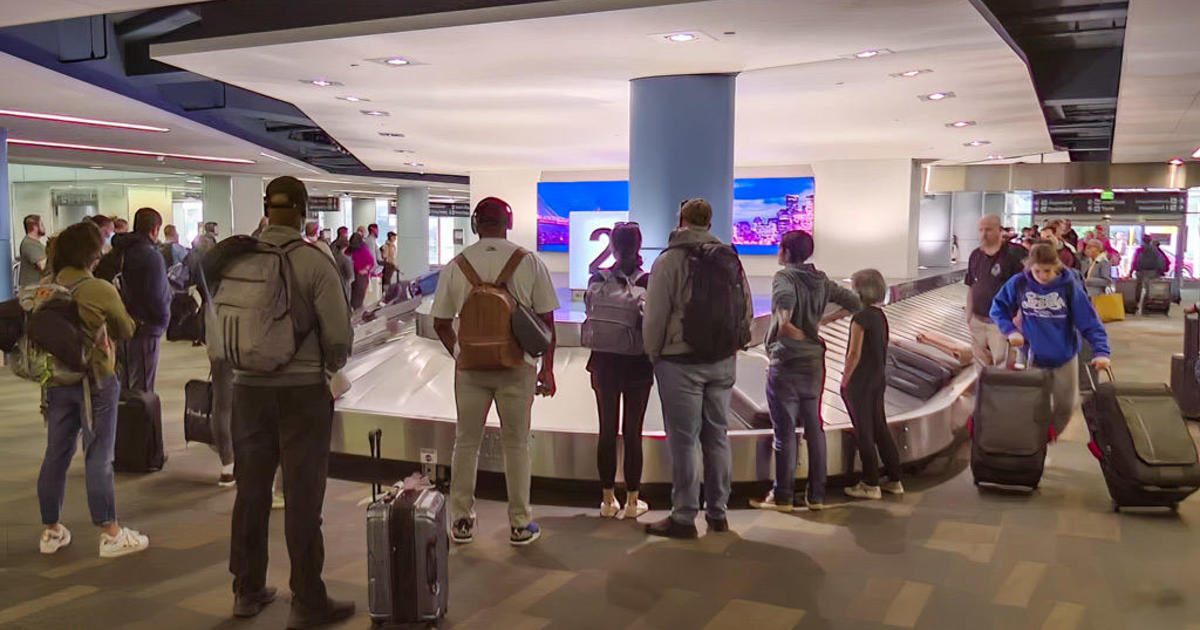Father Of Jetliner Stowaway Says He'll Bring Son Home To California
SAN JOSE (CBS/AP) -- He was young, displaced and frustrated, and he wanted nothing more than to reunite with his mother in their native Africa.
The 15-year-old Somali boy had been arguing at home, and in the kind of impulsive move that teenagers make, he hopped a fence at San Jose International Airport last Sunday and clambered into a wheel well of a Hawaii-bound jetliner.
He survived the trip, and he has not spoken publicly about the ordeal.
But his desperation and frustration — borne from a life in a new country and new culture, all of it without his mother — is becoming apparent through interviews with friends, family and law enforcement agents.
His father, Abdulahi Yusuf, said in a statement issued through a family spokesman Sunday that his son is "struggling adjusting to life in this country."
"Our situation was aggravated by our displacement in Africa for many years after fleeing our home country of Somalia because of war conditions. As a result, my son was not able to receive any formal education before we immigrated to the United States," the statement said.
The father said he plans to fly to Hawaii soon to reunite with his son and is "excited to bring him back home to his family in California." He said the family was "deeply concerned" when the boy went missing and was relieved to hear he was safe.
The struggles faced by immigrant children were echoed by Talha Nooh from the Muslim Community Association, where the family were members.
"What people need to understand is that these young teens are coming from a country torn by a civil war with no basic education and suddenly put in these high schools or elementary schools where they have a cultural shock," Nooh said.
"This whole thing should be looked at in the context of a teen who is emotionally attached to his mom and grandparents," Nooh said. "The father is working 24 hours a day to take care of family here and other family members in the horn of Africa."
For decades, Somalia, where the family is from, has been plagued with internal conflict, drought and violence. Today more than 1 million Somali refugees are living in neighboring Kenya, Ethiopia and Yemen.
A United Nations official told The Associated Press that the boy's mother, 33, lives at the Sheder Refugee Camp in Ethiopia, which houses about 10,200 displaced Somalis.
Speaking with Voice of America radio from a refugee camp in eastern Ethiopia, the teen's mother, Ubah Mohamed Abdullahi, said her son had recently learned that she was alive after being told by his father she had died.
"I know he was looking for me, and I am requesting the U.S. government to help me reunite with my kids," she told VOA. She said her ex-husband took their three children to California without her knowledge, and that she hadn't heard from them since 2006.
But community members said the parents had gone through a difficult divorce and that there are differing versions of what their children were told. The family is working with the Council on American-Islamic Relations to help communicate with medical providers, law enforcement, social workers and the media.
School district officials confirmed the boy came to the U.S. four years ago.
A teenage friend in California, who asked to remain anonymous because he was not authorized to speak for the family, said the boy was quiet, shy and religious, sorely missing his mother.
"Every day he was telling me: 'I miss Somalia, I miss my mom,'" the friend said. "He just wanted to see his mom."
Last Sunday, he hid in the wheel well for the 5½-hour trip over the Pacific Ocean to Hawaii. He survived despite incredibly low temperatures and low oxygen. Authorities say security video shows him wearing a San Francisco Giants hoodie and popping out of the wheel well on a Maui tarmac.
He has remained hospitalized in Hawaii.
Omar Lopez, who teaches at University of Southern California's School of Social Work, said typically in runaway cases, social workers assess the child and the family to rule out violence or abuse at home.
He said it can take longer to do those assessments in cases of immigrants with limited English skills, and that in this situation, there are several different state bureaucracies involved that could delay a reunion.
Jaque Kelley-Uyeoka, the deputy CEO of Hale Kipa, a nonprofit that works with at-risk youth in Hawaii, said the Hawaii Department of Human Services has several options for youth who run away from home, including foster homes and emergency shelters.
"They've got a couple of options they could use if in fact they were doing an investigation and needed a safe place for a youth to stay," she said.
While stressing that she neither speaks for the department nor has any firsthand knowledge of this case, she offered another possibility: Case workers may simply prefer not to disrupt the boy's comfort if he feels safe at the hospital.
© Copyright 2014 The Associated Press. All Rights Reserved. This material may not be published, broadcast, rewritten or redistributed



